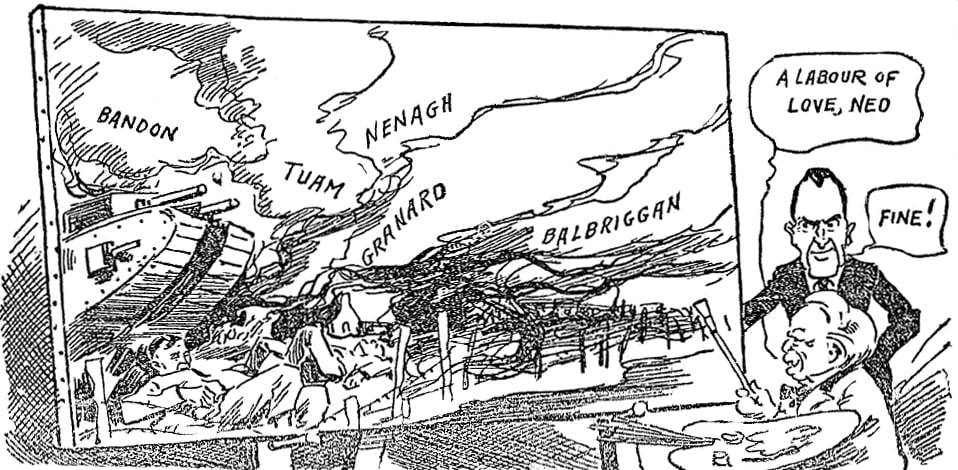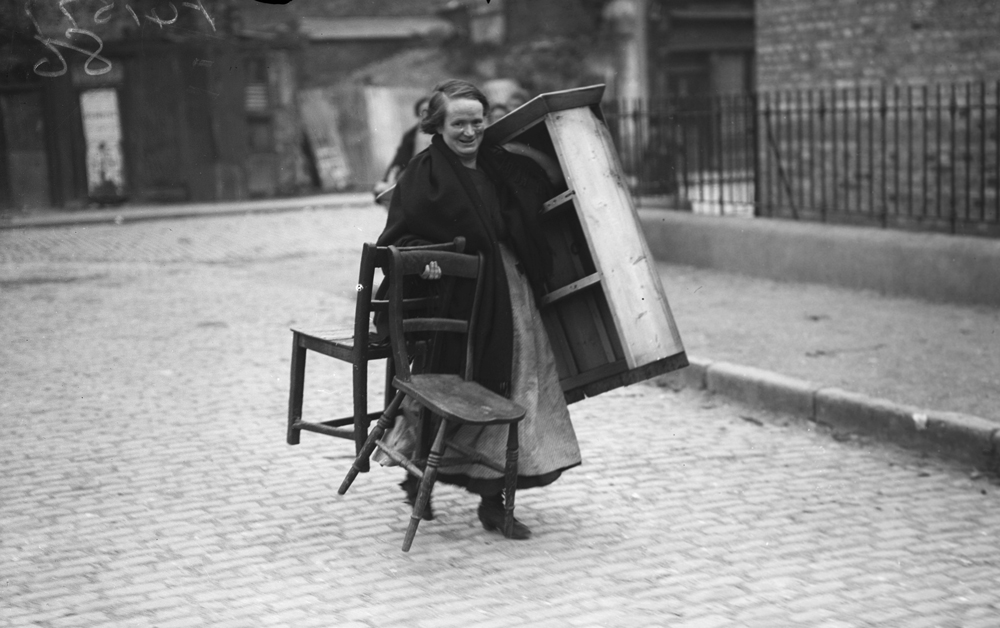Women and children bearing brunt of British war in Ireland
London, 12 November 1920 - The war being waged by the British authorities in Ireland is being directed largely at women, children and unarmed men.
That is the conclusion of a report on the Irish situation that has been published by Women’s International League (WIL), which recently visited the country. Among the locations visited by members of the WIL were Belfast, Derry, Lisburn, Dublin, Balbriggan, Limerick, Lahinch, Ennistymon, Tuam, Galway, Cork and Mallow.
The WIL reports that it gathered ‘repeated evidence’ of British government attempts to ‘fasten upon Sinn Féiners the responsibility for outrages of which the government forces were guilty.’ Accusing the Prime Minister of distorting facts in his speeches on Ireland, the league draws attention to the role of spies and informers in the conflict and suggests that the numbers of Irish who had been killed in this war might run into hundreds.
The report concludes that ‘Dáil Éireann rules with the overwhelming consent of the people’ and that the British administration in Ireland is doing ‘disastrous moral injury to Great Britain and to her reputation in all the world.’
The publication of the WIL’s report comes just days after the Prime Minister, in a throwaway remark in the House of Commons, referred to the recent killing of Eileen Quinn in Co. Galway as an ‘unfortunate accident’. The Prime Minister said that ‘it happens in every conflict of that kind that innocent people, certainly without any intention on the part of anyone, are hit.’
Reacting to these comments, the Irish Independent, declared that Irish people were being subjected to ‘far greater horrors than even the civilian population of Belgium had to face. Unarmed and inoffensive people have their houses raided and burned, their crops destroyed, and their industries completely ruined. Neither by night nor day can man, woman, or child feel safe from stray bullets.’

Sir Edward Carson congratulating Lloyd George on the policy of reprisals in Ireland (Image: Sunday Independent, 14 November 1920)
Murder of Eileen Quinn
In the case referred to by the British Prime Minister, Eileen
Quinn from Gort was fatally wounded when she was shot from a lorry
containing uniformed men who were driving around the district on 1
November. Quinn was holding her baby in her arms when she was
shot.
According to witnesses, the men were discharging rifles and revolvers wildly at great danger to innocent local people. Sir Hamar Greenwood told the House of Commons that the troops were anticipating an ambush. In evidence given to the military inquiry into the incident, one of the uniformed men testified that ‘when travelling along a suspicious looking place, like a wood, we would fire our rifles in the air, but would not fire near a house or near decent-looking civilians. I was armed with a rifle. I fired a few shots on the road to Galway.’
The parish priest, who officiated at Eileen Quinn’s funeral compared the tragedy of her death to the Turkish atrocities in Armenia. Rev. J. Cassidy described Quinn as a most God-fearing and Christian woman.
The military inquiry into her death has not yet delivered its verdict.
[Editor's note: This is an article from Century Ireland, a fortnightly online newspaper, written from the perspective of a journalist 100 years ago, based on news reports of the time.]





















